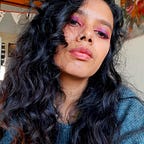Write what you know.
Amended from an Instagram rant:
“Write what you know” was the adage of every literature and English language teacher in my primary and secondary schools. Teacher after teacher advised us this, as we read and analysed and studied I’m the King of the Castle, and The Monkey’s Paw, and excerpts of fantastical tales set in England or America or Australia, occasionally straying into the territory of Catherine Lim’s world. I don’t remember ever reading a book where I saw examples of how my life was valued, where I could glimpse how my story could be told.
I wanted to be a writer but felt more adequately equipped to build worlds more akin to Sweet Valley than Tampines Street 21, worlds where people call their parents by their names instead of “mama” and “abah”, where they had sleepovers instead of hours-long baca-baca kenduri at the big house on Langsat Road.
Worlds where kids slept in their own rooms instead of sharing a bed with their mum and sisters, where they ate at burger joints with friends after school instead of sucking on 30 cent chocolate-flavoured ice before madrasah class.
There were more options in the word bank to articulate Whiteness than there was to describe the mind-blowing, intricate colours of my multi-hyphenated ethnic and religious identities. Or to tell the folklore and stories that were whispered into my ears by my folks and great grandparents over Quran lessons. Like how the night before every single test and exam of my childhood, my 70-something-year-old moyang would crouch on her sejadah, write الله 33 times in a white bowl by dipping a satay stick into an inky mixture of Milo powder and hot water, swirl some warm water in the bowl the next day to dissolve the sweet concoction of chocolate malt and God, let us drink it to get His favours on our side, before we’d head off to school to ace our exams.
Writing what we knew meant recognising the magical endlessness of our inner and outer lives, instead of feeling like we needed to contort ourselves to fit into someone else’s story.
One of the first things settlers and colonisers stole from me was the ability to find my life worth reading about.
